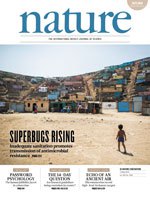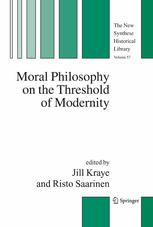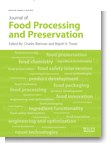 The week at Retraction Watch featured the corrections of papers claiming that conservative beliefs were linked to psychotic traits, and a new member of our leaderboard, from philosophy. Here’s what was happening elsewhere: Continue reading Weekend reads: Idiotic reviews; wrong metrics in China; questions about preprints
The week at Retraction Watch featured the corrections of papers claiming that conservative beliefs were linked to psychotic traits, and a new member of our leaderboard, from philosophy. Here’s what was happening elsewhere: Continue reading Weekend reads: Idiotic reviews; wrong metrics in China; questions about preprints
Author denies accusations of blatant duplication
 Twitter is abuzz today over allegations that a recent paper in Scientific Reports contains a blatant example of duplication.
Twitter is abuzz today over allegations that a recent paper in Scientific Reports contains a blatant example of duplication.
According to the allegations, a group of researchers in Malaysia have used the same four images to represent some 30 cells at different stages of cell death. One researcher has even suggested the allegedly doctored images appear in three different papers.
Is this a manipulated image? See for yourself:
Continue reading Author denies accusations of blatant duplication
Pharmacology journal pulls paper for “insufficient scientific quality;” authors disagree
 Against the authors’ wishes, a pharmacology journal has retracted a paper after receiving two messages questioning the “soundness of the experimental results.”
Against the authors’ wishes, a pharmacology journal has retracted a paper after receiving two messages questioning the “soundness of the experimental results.”
The editors of the journal, Frontiers in Pharmacology, issued an expression of concern about the paper in April 2016, and investigated it following the allegations. According to the retraction notice, the authors disagree with the retraction.
Here’s the retraction notice for the paper: Continue reading Pharmacology journal pulls paper for “insufficient scientific quality;” authors disagree
Three more papers felled by suspected fake reviews
So far, we’ve counted more than 300 papers that have been retracted after editors suspected the peer-review process had been compromised — and we’re adding three more to the list.
Editors of the Journal of Food Processing and Preservation became suspicious of the three papers after discovering similarities in reports from supposedly different reviewers. When they were unable to verify the identities of the reviewers, they pulled the papers.
An editor told us that he thinks the reviewer identities were fabricated entirely (as opposed to stolen):
Continue reading Three more papers felled by suspected fake reviews
“All co-authors are honorary:” Team earns fifth retraction
 A team of researchers from Japan has earned a fifth retraction, after co-authors told the journal that they did not participate in much of the paper.
A team of researchers from Japan has earned a fifth retraction, after co-authors told the journal that they did not participate in much of the paper.
Yoshihiro Sato, listed at Mitate Hospital, is the only author of the paper who was not “honorary,” the managing editor of the journal confirmed. He and the same co-authors recently lost three other papers about preventing hip fractures for “concerns regarding data integrity” and authorship issues — one of those papers, published in JAMA, specified that Sato was responsible for the data. All four authors were also included in a retraction last year of a paper with “concerns about the underlying data;” there, too, Sato said his co-authors were named “for honorary reasons.”
Here’s the retraction notice for “Alendronate and vitamin D2 for prevention of hip fracture in Parkinson’s disease: A randomized controlled trial,” published in Movement Disorders:
Continue reading “All co-authors are honorary:” Team earns fifth retraction
PLOS ONE retracts 2 malaria papers over doubts experiments ever took place

Authors have retracted a pair of PLOS ONE papers after an investigation suggested the articles might contain some fiction.
In the papers, the authors describe collecting and analyzing the DNA of mosquitoes to look for changes following the introduction of bed nets treated with insecticides to combat malaria. However, an investigation by the Institut de Recherche pour le Développement in France could not confirm some of the experiments ever took place.
Here’s the retraction notice for “How the Malaria Vector Anopheles gambiae Adapts to the Use of Insecticide-Treated Nets by African Populations,” which appears at the top of the paper:
Continue reading PLOS ONE retracts 2 malaria papers over doubts experiments ever took place
Should researchers guilty of misconduct go to “rehab”?

A report on the first few years of “researcher rehab” suggests that three days of intensive training have a lasting impact on participants.
Specifically, among participants — all of whom had been found guilty of at least one type of misconduct — the authors report that:
A year later, follow-up surveys indicate that the vast majority have changed how they work.
The authors claim this shows the program is worth the time and investment — a $500,000 grant from the National Institutes of Health, and a cost of $3,000 per participant for the three-day course. Do you agree? Tell us what you think in our poll at the end of the story.
Infractions ranged from consent issues for human subjects, plagiarism, and outright fraud. Still, researchers who need this training aren’t much different from everyone else, the authors note in “Lessons of researcher rehab,” published today by Nature: Continue reading Should researchers guilty of misconduct go to “rehab”?
Meet our newest team member: Dalmeet Singh Chawla
 Join us in welcoming new staff writer Dalmeet Singh Chawla.
Join us in welcoming new staff writer Dalmeet Singh Chawla.
Dalmeet was inspired by talks at the 2014 Association of British Science Writers meeting (including by our own Ivan Oransky) to build a niche for himself as a writer – lucky for us, he chose science publishing. His focus has been on stories about innovations in scholarly publishing, but also covered peer review, authorship and publisher policies along the way.
As Dalmeet told us: Continue reading Meet our newest team member: Dalmeet Singh Chawla
Philosopher earns 14th retraction for plagiarism
 Today, we bring you a case of a serial plagiarizer.
Today, we bring you a case of a serial plagiarizer.
Martin W. F. Stone was a philosophy professor at the University of Leuven — by one account “widely admired and highly respected” — until 2010, when an investigation at the school concluded that his work is “highly questionable in terms of scientific integrity.” Over the past several years, he has racked up retractions, earning his 14th this spring, and spot #30 on our leaderboard.
Stone’s retractions were brought to our attention by philosopher Michael Dougherty, who found a notice for “Michael Baius (1513–89) and the Debate on ‘Pure Nature’: Grace and Moral Agency in Sixteenth-Century Scholasticism,” a chapter in Springer’s Moral Philosophy on the Threshold of Modernity.
The retraction notice says that the chapter Continue reading Philosopher earns 14th retraction for plagiarism
Pro-lifers call for JAMA to retract 2005 paper about fetal pain
 Pro-life activists have asked JAMA to retract a 2005 paper that suggested fetuses can’t feel pain before the third trimester.
Pro-life activists have asked JAMA to retract a 2005 paper that suggested fetuses can’t feel pain before the third trimester.
Critics are arguing that newer findings have shown pain sensation appears earlier in gestation, yet the 2005 data continue to be cited in the discussion around abortion. What’s more, they note, some of the authors failed to mention their ties to the abortion industry.
The 2005 paper has been cited 191 times, according to Thomson Reuters Web of Science. We spoke with Howard Bauchner, Editor in Chief at JAMA and The JAMA Network, who told us something similar to what he said last week, when PETA asked to retract a paper they claim could be harmful to elephants: Continue reading Pro-lifers call for JAMA to retract 2005 paper about fetal pain
